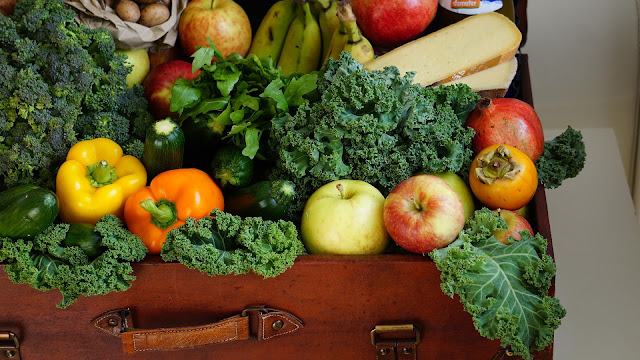
"Embracing plant-based diets fosters personal well-being and a sustainable planet. It's a powerful choice for our health and the environment." Michael Corthell
Human Health:
Reduced Risk of Chronic Diseases: A plant-based diet, when well-balanced, has been associated with lower risks of heart disease, certain cancers, type 2 diabetes, and other chronic illnesses.
Lower Risk of Foodborne Illnesses: Plant-based diets are less likely to be contaminated with harmful bacteria like E. coli, Salmonella, and Listeria, which are commonly associated with animal-based products.
Reduced Exposure to Toxins: Some contaminants like heavy metals and antibiotics are more prevalent in animal-based foods, particularly in conventionally produced meat and dairy.
Environmental Impact:
Lower Greenhouse Gas Emissions: Animal agriculture is a significant contributor to greenhouse gas emissions. Plant-based foods typically have a lower carbon footprint, especially when sourced sustainably.
Reduced Land and Water Use: Producing plant-based foods generally requires fewer resources like land and water compared to raising animals for food.
Preservation of Biodiversity: Large-scale animal farming often leads to habitat destruction and loss of biodiversity. A plant-based diet can contribute to the conservation of natural ecosystems.
Decreased Pollution: Animal agriculture is a leading cause of water pollution due to runoff from feedlots and manure lagoons. Plant-based agriculture generally has lower environmental pollution impacts.
While it's important to note that any diet, including a plant-based one, can be unhealthy if not balanced properly when done right, a plant-based diet tends to offer significant health benefits and has a lower environmental impact.
Resources
Health:
Academy of Nutrition and Dietetics: Position Paper on Vegetarian Diets - Link
World Health Organization (WHO): Nutrition - Link
Physicians Committee for Responsible Medicine (PCRM): Health Topics - Link
Environment:
United Nations Food and Agriculture Organization (FAO): Livestock's Long Shadow - Link
World Resources Institute (WRI): Shifting Diets for a Sustainable Food Future - Link
Environmental Working Group (EWG): Meat Eaters Guide - Link
General Information:
The Vegan Society: Resources - Link
Harvard T.H. Chan School of Public Health: The Nutrition Source - Link
National Institutes of Health (NIH): National Library of Medicine - Link
Remember to check for the most recent and updated information, as research in these areas continues to evolve.
Comments
Post a Comment
We welcome your input!